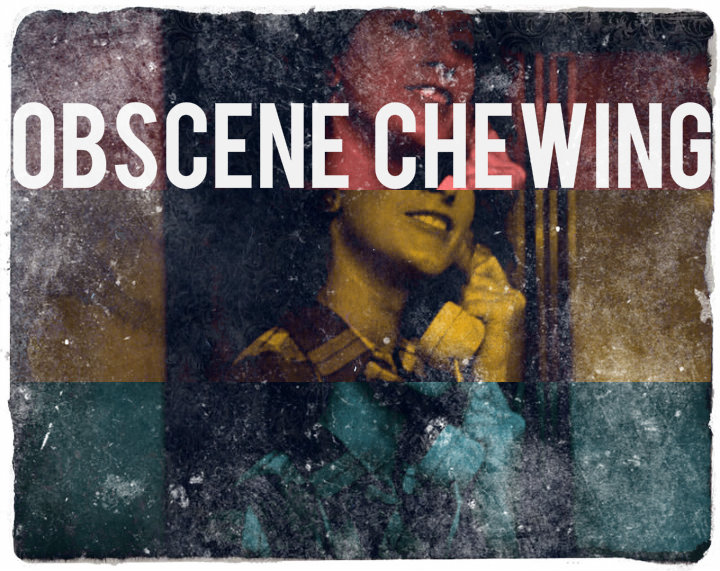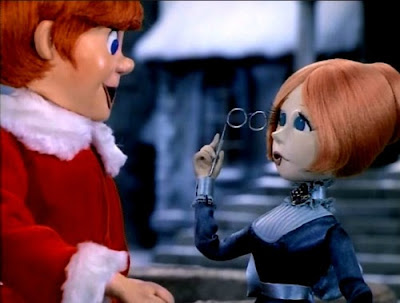1. Santa Claus Is Comin' to Town (1970)
I can't think of a much more disturbing pairing than Mickey Rooney's voice and the body of a young ginger Santa. While it of course didn't strike me at the time, Rooney's Santa is awfully gruff and authoritarian—and when he performs the song 'Be Prepared to Pay' (a.k.a. 'If You Sit on My Lap Today'), it's only a hop, skip, and a jump to the darker intimations of Santa drinking cheap sherry straight from the bottle in his wood-paneled basement and barking at six-year-old boys to take off their shirts and oil themselves up for playtime. In other words, I'd check the sex offender registry before I'd leave my kids with this Santa. (I'll bet you he wears those polished jackboots even in the off-season, if you catch my drift.)
Claus's love interest (or beard, depending on your interpretation) is a corseted little minx named Miss Jessica, who has roughly the proportions of Joan Harris (Christina Hendricks) from Mad Men. Her ample rack and generous, spankable booty are strung together by a totally impossible waistline that could only be achieved by some manner of sartorial torture. As a bookish sex kitten, Jessica no doubt embodies the physical ideal and/or fantasies of her animators—and if I were a woman, I can't say I wouldn't be offended by this stop-motion yule log raiser. After all, she's a funhouse mirror version of the traditional hourglass figure, while Santa is just some lanky, waifish dolt with little to offer in compensation for her sexual allure. (Unless he has a freckled horsecock underneath that red flannel. We know he doesn't have any money—so that rules out the Anna Nicole angle.)
But don't get too worked up, fellas, because you know the last act to this story: like Santa, Miss Jessica ends up fat and probably diabetic. This is the kind of couple that eats fried chicken in bed together and finds leftovers wedged under their teats a few weeks later. One or both of them will probably have to have their feet amputated, and it goes without saying that the sleigh will have to be made scooter-accessible.
But for me, the real star of this special was was its comic villian—a Bismarck-era (?) despot called the Burgermeister Meisterburger, obviously a none-too-subtle riff on 20th century Germany's penchant for militarism and authoritarianism. Short, squat, and outfitted in the latest in Bavarian kitsch, the Burgermeister Meisterburger bans toys in Sombertown because he trips on one and injures himself. (Yes, the logic is a little shaky here, but what better way to teach the youngins about the dangerous caprices of totalitarianism?)
There's also a secondary villain in this one called the Winter Warlock, but he turns out to be a giant pussy and is quickly co-opted by Santa into his band of communist rebels. One thing that always really bothered me about the Winter Warlock is that you can tell he is very spindly but somehow he manages to fill out that glittery robe pretty well. I call steroids. I mean, come on... his hands are Rose Kennedy's, but his shoulders are Vin Diesel's.






